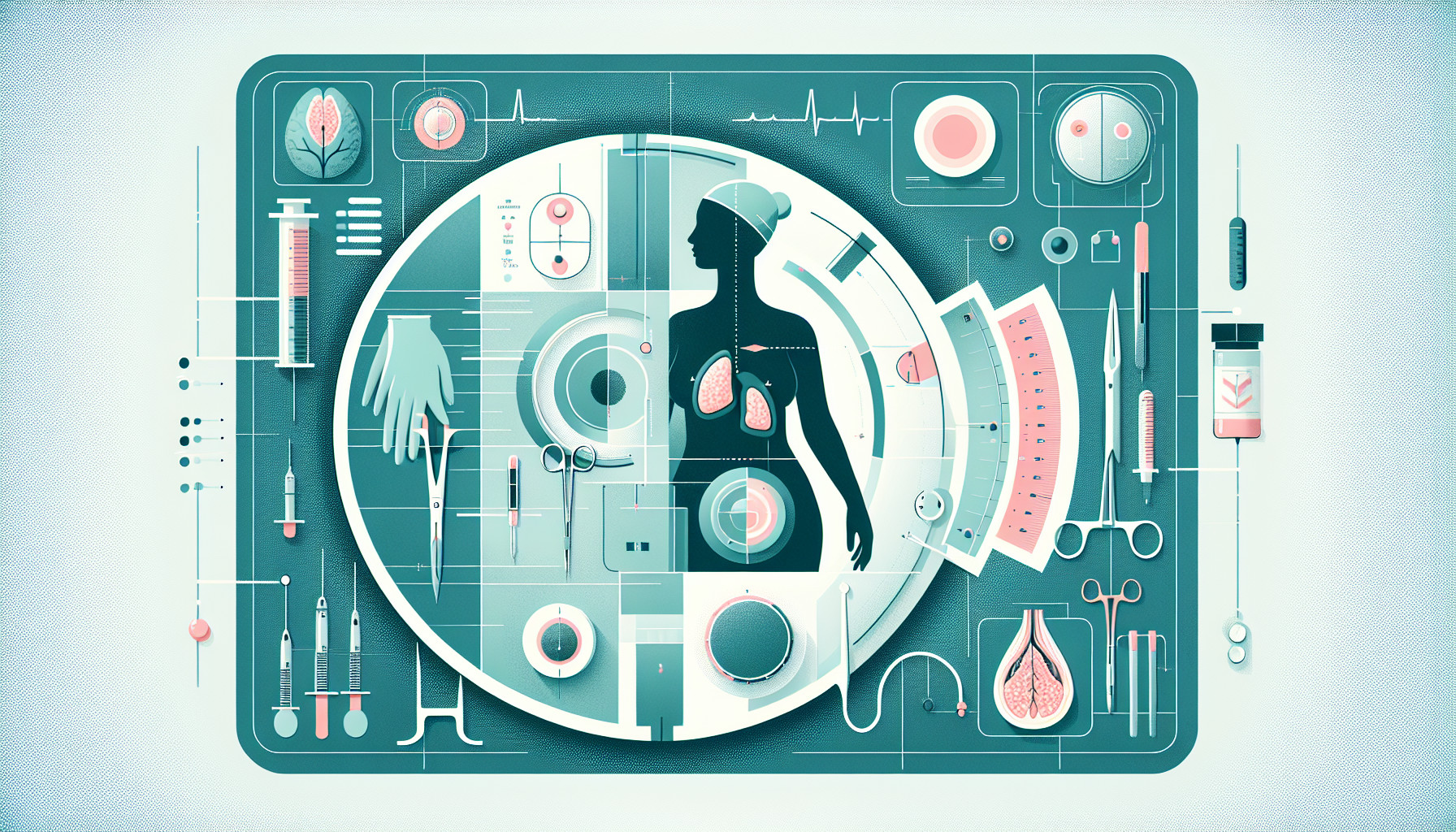Our Summary
This research studied the outcomes of a new approach to managing mastectomy patients, known as Surgical Home Recovery (SHR). The SHR initiative allows most patients to be discharged on the day of their operation. The study looked at mastectomy cases from 2017 to 2019, comparing patient characteristics, surgical details, and pain management strategies between those who were admitted to hospital and those who were discharged on the same day.
The study found that 64% of the 2,648 mastectomies were managed as outpatient procedures. Factors that increased the likelihood of a patient being suitable for SHR included receiving IV acetaminophen and opiates during surgery, and having surgery performed by a surgeon who specializes in breast surgery. Patients were less likely to be suitable for SHR if they had bilateral mastectomies (both breasts removed), had immediate reconstruction surgery, or had a higher American Society of Anesthesiologists class (which is a measure of a patient’s physical health prior to surgery).
Within the group of patients who were managed with SHR, 7% had to return for unplanned care within a week of their operation. Patients with a higher American Society of Anesthesiologists class and African American patients were more likely to need unplanned care. However, receiving IV acetaminophen and having an opiate prescription decreased the likelihood of needing to return for care.
The researchers concluded that the volume of surgeries a surgeon performs and the use of specific pain medications can increase the chances of a patient being suitable for SHR. This study helps to identify which patients are most likely to benefit from the SHR approach and how to best manage their care.
FAQs
- What is the Surgical Home Recovery (SHR) initiative mentioned in the study?
- What factors increase the likelihood of a patient being suitable for the SHR approach after a mastectomy?
- What percentage of patients managed with SHR had to return for unplanned care within a week of their operation?
Doctor’s Tip
A helpful tip a doctor might tell a patient about mastectomy is to discuss with their surgeon the possibility of being discharged on the same day of the operation, known as Surgical Home Recovery (SHR). Factors such as receiving IV acetaminophen and opiates during surgery, having surgery performed by a breast surgery specialist, and not needing bilateral or immediate reconstruction surgery may make a patient more suitable for SHR. It is important to follow post-operative care instructions and to communicate any concerns or symptoms to your healthcare provider promptly.
Suitable For
Overall, patients who are recommended mastectomy and are suitable for the Surgical Home Recovery approach typically include those who:
- Receive IV acetaminophen and opiates during surgery
- Have surgery performed by a surgeon specializing in breast surgery
- Are undergoing unilateral mastectomy (one breast removed)
- Have a lower American Society of Anesthesiologists class
- Do not require immediate reconstruction surgery
- Do not require bilateral mastectomies
Patients who are not suitable for the Surgical Home Recovery approach typically include those who:
- Have a higher American Society of Anesthesiologists class
- Are African American
- Require bilateral mastectomies
- Require immediate reconstruction surgery
It is important for healthcare providers to assess each patient individually to determine the most appropriate management approach for their mastectomy procedure.
Timeline
In summary, before a mastectomy, a patient typically undergoes various pre-operative tests and consultations with their healthcare team to prepare for the surgery. After the mastectomy, the patient may experience pain and discomfort, and will be closely monitored for any complications. Depending on their individual circumstances, some patients may be discharged on the same day as their surgery, while others may require a longer hospital stay. Follow-up care and monitoring will continue after the surgery to ensure proper healing and recovery.
What to Ask Your Doctor
Am I a candidate for the Surgical Home Recovery (SHR) approach for my mastectomy?
What are the potential benefits of being discharged on the same day of my operation?
What are the potential risks or complications associated with being discharged on the same day of my mastectomy?
How will my pain be managed during and after the surgery if I am discharged on the same day?
What factors would make me more or less likely to be suitable for the SHR approach?
What is the surgeon’s experience with performing mastectomies and utilizing the SHR approach?
How will my post-operative care be managed if I am discharged on the same day?
What signs or symptoms should I watch for that may indicate a need for unplanned care after my mastectomy?
How will my follow-up care be scheduled and managed if I am discharged on the same day?
Are there any specific pain medications or strategies that have been shown to decrease the likelihood of needing unplanned care after a mastectomy?
Reference
Authors: Vuong B, Dusendang JR, Chang SB, Mentakis MA, Shim VC, Schmittdiel J, Kuehner G. Journal: J Am Coll Surg. 2021 Jan;232(1):35-44. doi: 10.1016/j.jamcollsurg.2020.09.015. Epub 2020 Oct 3. PMID: 33022403
